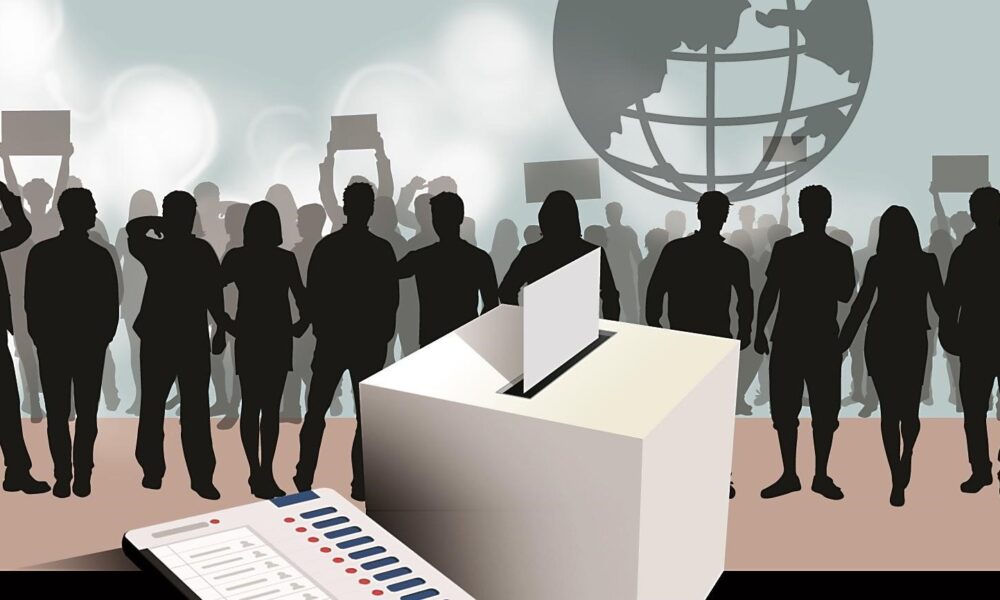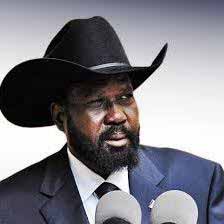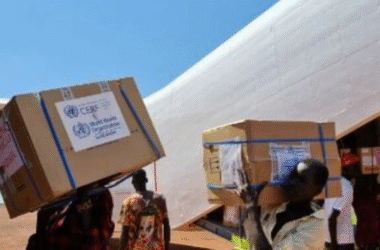By Charles K Mark
As the key principals of the R-ARCSS continue to bite their fingers on whether to or not go for elections, some citizens seem too tired of the status quo.
The unity government (R-TGoNU), under the leadership of President Salva Kiir Mayardit, continues to experience divisive arrangements on whether to or not have elections.
With the ruling party, the SPLM-IG, determined to take the country to its first-ever national election, their main opposition, the SPLM-IO of Riek Machar Teny, holds a contrary position.
This drama surrounding the election prompted the No. 1 Citizen Daily Newspaper to collect public views and opinions on the matter, and our reporter spoke to some Juba residents.
Taban Joseph, a resident of Munuki and a businessman, said in any country, in any governance system, there has to be an election because it allows the citizens to select and elect into office the president and their representatives.
He said those who sit in such institutions must be elected by the people, but not to keep them in a transitional government that is already time-bound.
“By the end of the transitional government, we need to have this election because the parties to this government now have been at war with one another; they’ve been in conflict with one another. So, everybody is now claiming legitimacy as being the right party, representing the will of the people of South Sudan,” Taban said.
He expressed that putting an end to the claim of legitimacy is through opening an arena for each party to go speak to the masses, speak to the people, and present objectives.
“Based on this, then we feel free now to elect into office the party, the people, or the representatives that really represent us and represent our aspirations,” the resident uttered.
Taban expressed frustration with the country having five deputies for the president, saying it is only through elections that the country will overcome such a burden.
“We have our president. He has five deputies. So how are we going to remove these five deputies? That’s why I hear some voices saying, we better have a bogus election.”.
“We better have whatever kind of election we do just to end this stage. And then we’ll correct it from there,” he suggested.
He feared that, despite the failure to have the coming election, the conflict in the country would continue since the temporary arrangement by the IGAD would no longer constitute a guarantee.
Another resident, Lemi Isaac, said elections are a must and that if the country is not ready, then someone has to carry the blame for it.
He warned, however, that the anticipated election shouldn’t just be for the sake of the election.
“We want this election to be credible in the first place. We want it to be transparent, and we also want it to take place in a peaceful environment,” Lemi said.
He reiterated that if it is not transparent, credible, free, and fair, then it is better not to have it to avert possible violence.
The citizens want to see a peaceful transition of power to a single person heading the government.
They said there are numerous voices—grudging voices, especially from the opposition parties.
There is also fear about certain institutions that are very critical for the holding of a credible and transparent election but have yet to be operationalized.
Arguments also swap around refugees who are yet to return, and constituencies that were devastated, and yet the national population census has not been conducted to determine the number of eligible voters.
“These are questions they’re raising. And there are experts talking about this. They’re saying that without this, elections cannot be free, credible, fair, or transparent,” the citizen cited.
Mr. Lemi worries that some constituencies are still bushy, where people were displaced during the 2013 and 2016 civil war and never returned.
“So if you are running elections in these places and those constituencies, who is going to represent them without them?” he asked.
In many constituencies in the border areas, in the Equatoria region, for example, he said most of their citizens are still in refugee camps in the neighboring countries.
Some are in Sudan; some are in Uganda; others in Kenya; and others in Ethiopia.
“In all our borders, there are refugees there. Now, these people, how are you going to conduct elections in their areas?” he asked.
So this is again casting a very bleak, very dark atmosphere around the credibility or the possibility of the elections being done according to the citizens.
A resident of 107, Kiden Gladys is very ready to participate in the first-ever elections, through which she will vote for a leader of her choice.
Kiden, however, wondered why elections are scheduled for a festive month such as December and more so at the end of the year.
“I am very ready for the election, “zatu,” but wait, when are the elections? Will I even be here? Because I am hoping to go and spend some time with my mom in Uganda.” She said until December she was not sure she would be back by then.
One resident who preferred anonymity alleged that it was just propaganda by the government to make people excited about the election, but there was no guarantee yet.
He thinks it is just a trick that the government wants to use to spend public revenue and fund individual political gains, citing that without a census, there is no election.
“There are some areas where, if you go today, you will not find a single home. People are not there. For example, how do you estimate an area? Whether there are people there or not, how do you estimate it?” he said.
Some members of the public also believe that for people to return, there is still a long journey for the government to create a conducive atmosphere where they left.
The political parties council announced yesterday that it has started registering political parties interested in contesting the elections.



